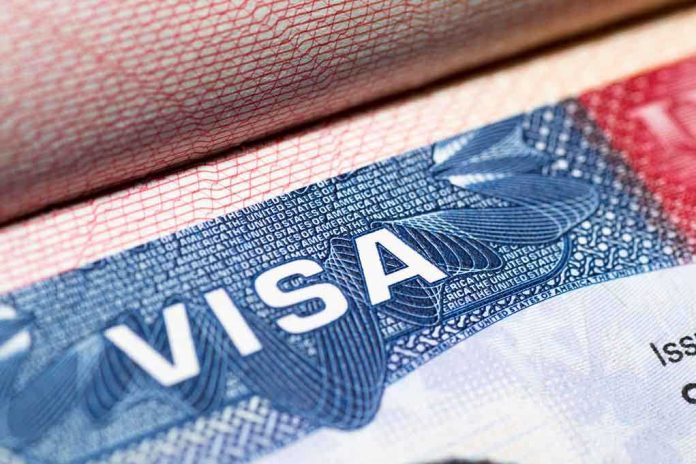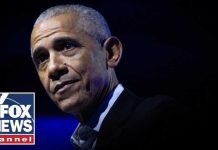
The Trump administration’s recent visa revocations send a strong message against foreign criticism, stirring debates on free speech and immigration policy.
Story Highlights
- Trump administration revokes visas of foreigners mocking Charlie Kirk online.
- Action coincides with Kirk’s birthday, signaling support for American conservatives.
- Raises questions about free speech and international norms.
- Potential precedent for retaliatory immigration measures.
Visa Revocations Spark Controversy
In a bold move, the Trump administration has revoked visas for several foreign nationals who posted derogatory comments about Charlie Kirk online. The action, intentionally timed with Kirk’s birthday, underscores the administration’s resolve to curb foreign interference in U.S. political discourse. Critics argue this sets a dangerous precedent, merging immigration policy with political retaliation.
Charlie Kirk, a prominent conservative activist and founder of Turning Point USA, has been a staunch supporter of Trump-era policies. The administration’s decision to revoke visas appears to align with its broader agenda of defending American values against perceived foreign threats. This move has been met with varied reactions, both domestically and internationally, as it highlights ongoing tensions between free speech and immigration control.
Historical Context and Precedents
The Trump administration’s aggressive stance on immigration is well-documented, with policies such as travel bans and increased scrutiny of visa applicants. This latest action echoes past incidents, such as the denial of entry to Palestinian student Ismail Ajjawi in 2019 over social media posts. The use of such measures to address online speech marks a continuation of this hardline approach.
Foreign nationals have often found themselves embroiled in U.S. political debates, particularly on social media platforms. The administration’s response to foreign criticism through visa revocations raises concerns about the chilling effect on international discourse and the implications for global diplomatic relations.
Implications and Reactions
The immediate consequences of these visa actions include heightened diplomatic tensions and a potential chilling effect on foreign nationals’ online expression. Critics warn that such measures could tarnish the U.S.’s reputation as a bastion of free speech, while conservative commentators praise the administration for protecting American values.
As the international community reacts, future visa policies may face increased scrutiny, potentially impacting sectors like higher education and tourism. The long-term effects of these actions remain to be seen, but they undoubtedly contribute to the ongoing debate over the intersection of immigration policy and free speech.
Diplomatic analysts predict possible reciprocal actions by other countries, further complicating international relations. As the Trump administration continues to implement its immigration policies, the balance between national security and fundamental rights remains a crucial point of contention.
Sources:
The New York Times, “Trump Administration Revokes Visas Over Social Media Posts,” 2019.
Washington Post, “Foreign Students Face Visa Denials Over Political Speech,” 2019.
Reuters, “U.S. Requires Social Media Details from Visa Applicants,” 2019.
American Immigration Lawyers Association, “Executive Discretion and Visa Policy,” 2020.














